GFL Environmental
Summary
- GFL is the fourth largest diversified environmental services company in North America.
- The company offering services in solid waste management, liquid waste management, and infrastructure development.
- GFL owns, operates, and manages an impressive network of diverse, state-of-the-art, modern solid and liquid waste disposal, transfer and recycling facilities across our North American footprint.
- GFL operates numerous soil remediation facilities across North America that collectively manage around 3.5 million tons of soil per year.
- GFL has a workforce of more than 18,000 employees.
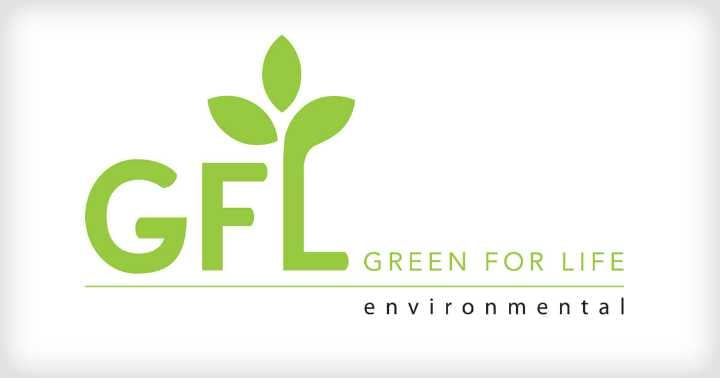
Company Overview
GFL, (NYSE:GFL, TSX:GFL) headquartered in Vaughan, Ontario, is the fourth largest diversified environmental services company in North America, providing a comprehensive line of non-hazardous solid waste management, infrastructure & soil remediation and liquid waste management services through its platform of facilities throughout Canada and in more than half of the U.S. states. Across its organization, GFL has a workforce of more than 18,000 employees.1
With strategically located operations across Canada and the United States, GFL is uniquely equipped to undertake practically any environmental challenge, with unparalleled commitment to safety and customer service.
Recognized by its signature fleet of bright green trucks and equipment, the company offer a wide range of environmental and industrial services to businesses, communities and households, providing a consolidated and sophisticated approach to meeting its customers’ needs.
One of the keys to its success lies in the diversity of its services and its ability to deliver robust integrated solutions – traditionally provided by multiple third parties – all from a single efficient company.
The company believe that, by providing safe, accessible and cost-effective solutions, the company encourage greater environmental responsibility and allow its customers and the communities the company serve to be Green For Life.
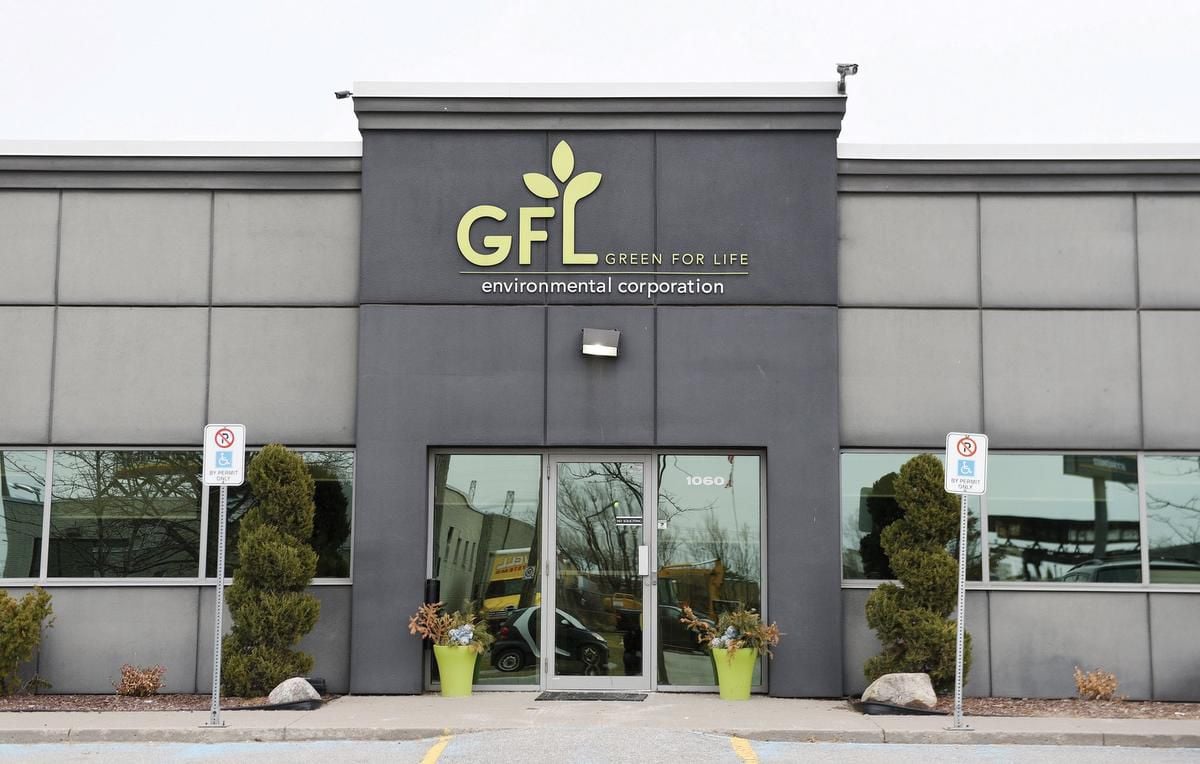
Facilities
As a comprehensive one-stop provider of integrated environmental solutions, GFL owns, operates, and manages an impressive network of diverse, state-of-the-art, modern solid and liquid waste disposal, transfer and recycling facilities across its North American footprint. These facilities play a huge role in the success of its daily operations, its continued growth and expansion, and its ability to offer its customers efficient, cost-effective and sustainable waste handling services that provide sophisticated alternatives to traditional waste management practices.2
With over 40 recycling and processing facilities across North America, which includes Material Recovery Facilities (MRFs), soil remediation facilities and organics processing facilities, GFL pursues every opportunity to divert reusable resources from landfills, which forms an important part of its commitment to recycling and the environment.
The company's facilities include:
70+ transfer stations
- 50+ liquid waste facilities
- 45 landfills
- 20+ MRFs
- 11 soil remediation facilities
- 11 organics processing facilities
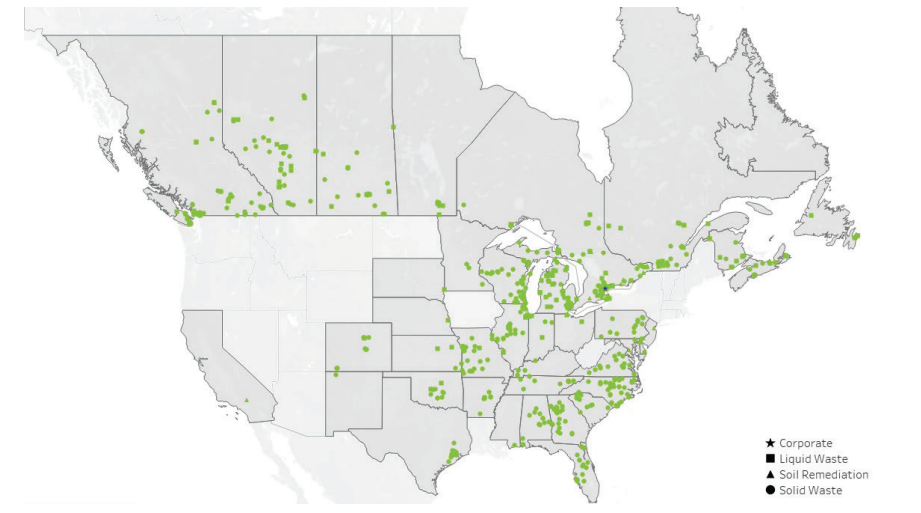
Convenience Sites
GFL has always strived to create innovative solutions to waste management challenges that cater to the specific needs of its customers, no matter where they are located. When it became clear that people living in more remote areas, away from dense commercial and residential regions, faced fundamentally different waste disposal issues from their urban counterparts, GFL put together a plan to design and develop the first man-operated convenience site.
Landfills
Safely disposing of non-hazardous waste. GFL owns and operates a broad network of specially-designed non-hazardous solid waste landfills and processing facilities across its North American footprint.
Material Recovery Facilities (MRFs)
GFL owns or manages Material Recovery Facilities (MRFs) across North America that use a range of state-of-the-art technologies to sort and prepare recyclable material for resale and reuse. The company's MRFs employ ballistic screens, optical sorters, robotics, and more, to sort a wide array of precious reusable resources such as wood, paper, cardboard and plastics, thereby diverting them from landfills.
In 2020, GFL’s MRF in Winnipeg, Manitoba was awarded the National Waste & Recycling Association (NWRA) 2020 Recycling Facility of the Year, which recognizes leading North American recycling facilities based on key factors such as innovation, sustainability and environmental impact.
The Winnipeg MRF opened for operation in October 2019. At 80,000 square feet, it comprises approximately 90% automated and 10% manual sorting, and houses one of the most advanced fiber and plastic recovery systems in Canada. The facility is also home to a SamurAI™ fully automated sorting robot, designed and manufactured by Machinex Industries Inc. that uses sensors to distinguish recyclable materials at ultra-high speed.
Organic Processing Sites
GFL’s organics collection and processing services provide an environmentally-conscious solution to the food, leaf and yard waste challenges of its commercial and residential customers. By receiving organic waste material, GFL is helping to divert precious reusable matter from landfills and giving the waste new life by processing it into nutrient-rich soil products. Another environmental benefit of keeping organic waste out of landfills is reduced emission of the harmful greenhouse gas methane.
As a leader in organic material processing, GFL handles over 400,000 tons of organic material at its facilities per year. The company's compost is produced to a superior quality grade, and trusted for a variety of agricultural purposes by gardeners, landscapers and farmers across North America.
GFL has designed and operates award-winning organic processing facilities, recognized for their composting system excellence. One of GFL’s largest facilities, in Delta, British Columbia, has recently been upgraded to include an agitated, aerated channel system, and incorporate the best control technology for aeration, material conveyance, process control and air treatment through a fully enclosed biofilter.
Soil Remediation Sites
GFL operates numerous soil remediation facilities across North America that collectively manage around 3.5 million tons of soil per year. All its facilities are fully regulated by local environmental authorities and operate to the highest standards of safety and quality.
The company's recycled soils are beneficially re-used at a wide variety of construction, agricultural, and redevelopment undertakings. Using recycled soils in construction and development projects reduces the need for raw materials, which not only benefits its customers by lowering their project costs, but also helps to reduce GHG emissions by avoiding additional transportation and promotes a circular economy.
In an ongoing, 10-year-plus project, recycled soils from GFL’s soil remediation facility in Logan, New Jersey, have been used by the Gloucester County Improvement Authority to cap a 172-acre former dredge disposal brownfield site. This has allowed the site to be redeveloped as an equestrian park, and for other recreational uses.
Transfer Stations
At GFL, the company constantly look for innovative solutions to its customers’ waste disposal and removal needs, to make the process as efficient and cost-effective as possible.
In-so-doing, the company saw an opportunity to leverage transfer stations as temporary disposal areas where waste could be accumulated before being transported to a larger landfill facility.
GFL was founded in 2007 in Southern Ontario with a single solid waste transfer station. Today, as one of the largest solid waste solutions providers in North America, GFL owns or manages a comprehensive network of transfer stations across Canada and the United States.
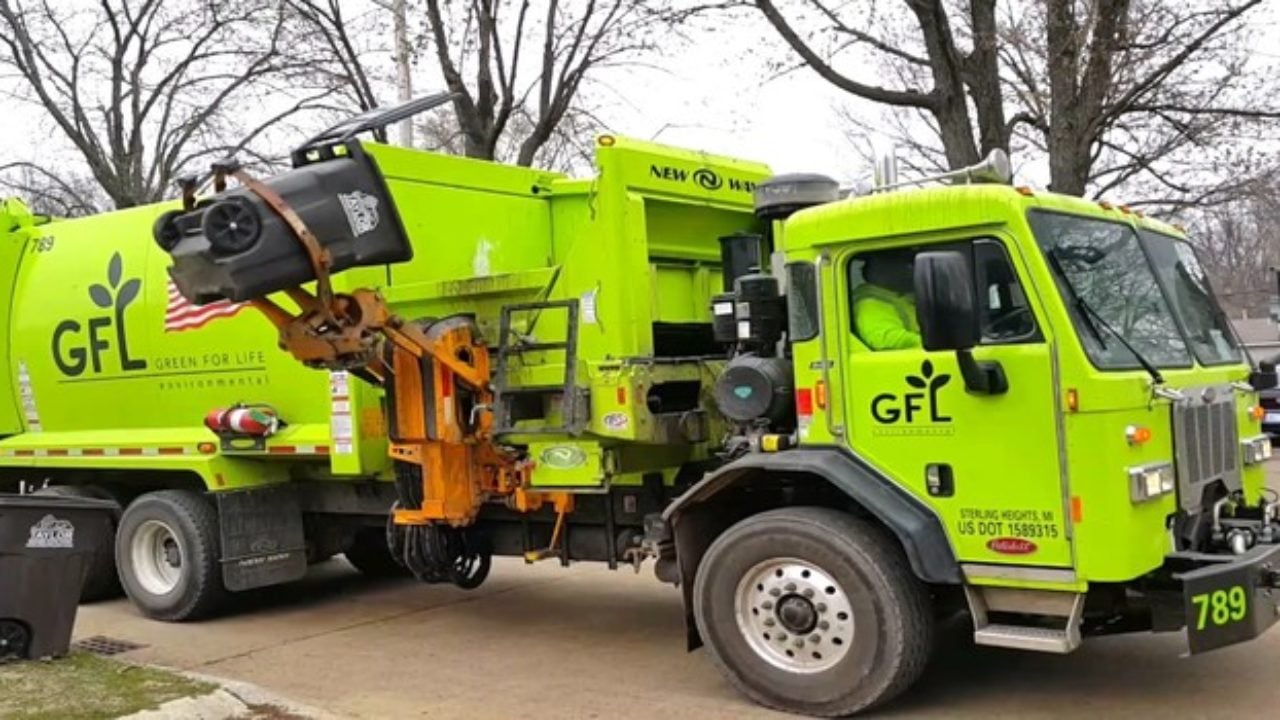
Services
GFL is much more than a waste management company – GFL is uniquely equipped to be the full-service environmental solutions partner its customers need.3
Solid Waste
With a wide range of sophisticated, tailored services and operational capacity across North America, GFL’s unified approach to environmental solutions and attention to customer care allows it to meet any waste management challenge.
For Home
- Waste Collection
- Recycling Collection
- Organics & Compost
- Roll Off Bins
- Bulky And Large Item Collection
For Business
- Commercial Recycling
- Commercial Dumpster Services
- Roll Off Bins
- Compactors
- Construction Waste
- Organics & Compost
- Document Shredding
Liquid & Hazardous Waste
From specialized collection, disposal and recycling services to HAZMAT emergency response, GFL has the equipment, experience and trained personnel to safely handle a variety of complex hazardous and non-hazardous liquid waste management challenges.
For Home
- Waste Programs
- Vacuum Trucks
For Business
- Automotive Waste Fluid Services
- Vacuum Trucks
- Commercial Hazardous Waste
- Certifications
- Er & Site Remediation
- Processing & Recovery
- Specialized Services & Industrial Cleaning
Infrastructure
GFL Infrastructure Group has the experience, skills, resources and industry expertise to provide safe, integrated, first-on-site services for your infrastructure development or
For Business
- Soil Remediation
- Excavation
- Shoring & Foundation
- Demolition
- Civil Division
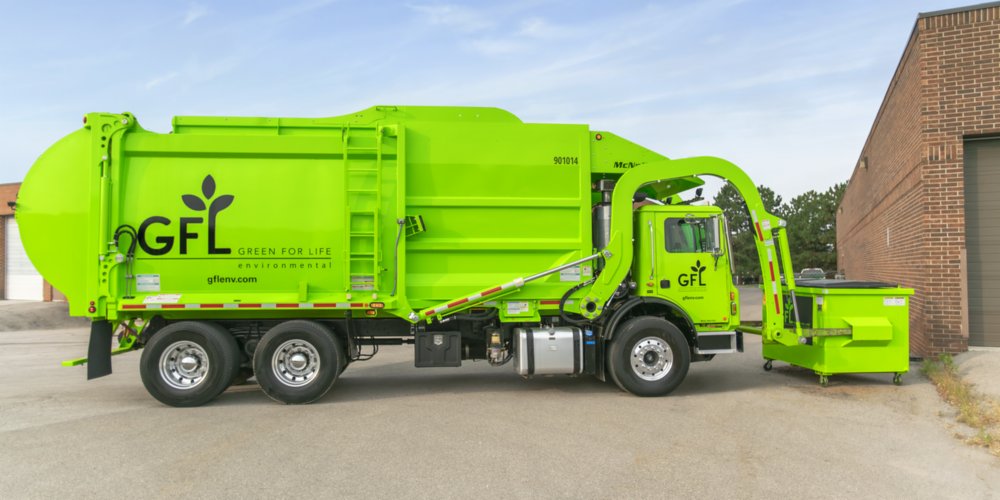
Financial Overview
Revenue
On a consolidated basis, revenue for the year ended December 31, 2021 increased by $1,329.3 million to $5,525.5 million, compared to the year ended December 31, 2020. The increase is primarily attributable to the impact of acquisitions completed since January 1, 2020, which accounted for approximately $1,209.8 million of the increase, the majority of which were in its solid waste business. Changes in foreign exchange rates decreased revenue by $146.8 million. Highlights of the changes in revenue during the year ended December 31, 2021, excluding the impact of acquisitions.4
Cost of Sales
Cost of sales increased by $991.8 million to $4,997.9 million for the year ended December 31, 2021, compared to the year ended December 31, 2020, predominantly attributable to the impact of acquisitions. Cost of sales as a percentage of total revenue for the year ended December 31, 2021 decreased by 500 basis points to 90.5%, compared to the year ended December 31, 2020. Changes in the individual cost categories as a percentage of revenue were the result of the impact of business mix, in conjunction with increased labour cost pressure from tight labour markets which drove up wage rates, training costs and overtime, as well as other inflationary cost pressures. Fuel costs as a percentage of revenue increased by 70 basis points to 4.2%, compared to the year ended December 31, 2020. Additional cost of risk management related to insurance and COVID19 also contributed to the increase in cost of sales as compared to the year ended December 31, 2020. Partially offsetting the cost increases were savings from its continued focus on cost management and enhancing efficiency. The decrease in depreciation expense as a percentage of revenue was attributable to the impact of purchase accounting for recent acquisitions. Specifically, the year ended December 31, 2021 included a one-time depreciation expense charge of $54.9 million due to the difference between the ARO calculated using the credit-adjusted, risk-free discount rate required for measurement of the ARO through purchase accounting, compared to the risk-free discount rate required for annual valuations, whereas the year ended December 31, 2020 included a one-time depreciation expense charge of $231.7 million. Excluding depreciation expenses, amortization of intangible assets, and acquisition rebranding and other integration costs, cost of sales as a percentage of total revenue for the year ended December 31, 2021 decreased by 100 basis points to 65.3%, compared to the year ended December 31, 2020.
Selling, General and Administrative Expenses
SG&A increased by $83.5 million to $591.9 million for the year ended December 31, 2021, compared to the year ended December 31, 2020. The increase was predominantly attributable to incremental salaries, benefits, information technology infrastructure investments and other costs related to the number and size of businesses acquired since January 1, 2020. There were also increased costs of risk management associated with being a public company for the year ended December 31, 2021. SG&A as a percentage of revenue was 10.7% for the year ended December 31, 2021 compared to 12.1% for the year ended December 31, 2020. Excluding depreciation expense, transaction costs and IPO transaction costs, SG&A as a percentage of revenue was 9.0% for the year ended December 31, 2021, unchanged from the prior year.
Interest and Other Finance Cost
Interest and other finance costs decreased by $163.5 million to $434.1 million for the year ended December 31, 2021, compared to the year ended December 31, 2020. In the prior year, a loss of $133.2 million was realized on the extinguishment of long-term debt that was repaid at the time of its IPO, in addition to $35.5 million of prepayment penalties for the early redemption of certain of its notes, compared with $49.3 million of prepayment penalties for the early redemption of certain of its notes for the year ended December 31, 2021. Interest expense of $324.8 million for the year ended December 31, 2021 was $47.6 million lower than the prior year, a decrease driven primarily by a lower average interest rate on the long-term debt balance outstanding. Additionally, amortization of deferred finance costs for the year ended December 31, 2021 was $14.4 million lower than the prior year.
Income Tax
Net income tax recovery decreased by $147.4 million to $106.0 million for the year ended December 31, 2021, compared to the year ended December 31, 2020. The decrease was predominantly due to lower tax losses attributable to lower interest and other finance costs, a non-cash foreign exchange gain, and gain on divestiture, compared to the year ended December 31, 2020. The company's basis for recording deferred income tax assets for these losses is the availability of deferred income tax liabilities, which will offset these deferred income tax assets in future periods.
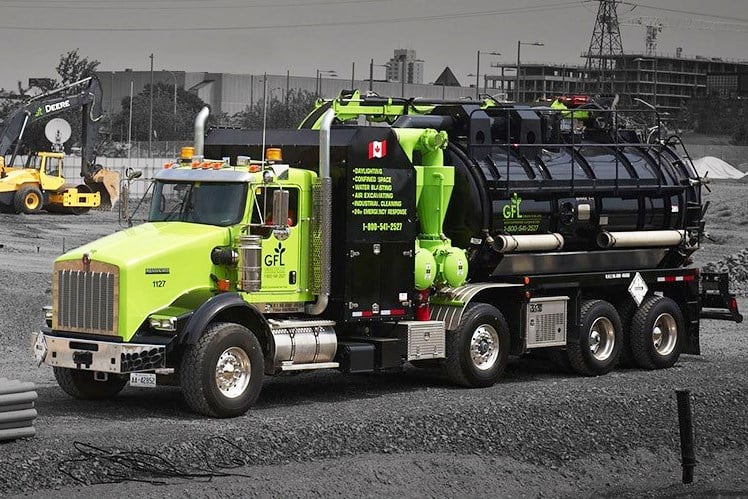
Segments
Solid Waste — Canada Segment
Revenue increased by $181.6 million to $1,410.9 million for the year ended December 31, 2021, compared to the year ended December 31, 2020. The increase was predominantly due to acquisitions completed since January 1, 2020, which contributed approximately $63.4 million of revenue, $44.7 million from price and surcharge increases and $22.4 million from higher selling prices for the saleable commodities generated from its MRF operations. The amount of price and surcharge increases were higher than the year ended December 31, 2020, as a result of the continued execution of its pricing strategies, as well as strong CPI adjustments on certain municipal collection contracts. Volume increased revenue by $51.1 million for the year ended December 31, 2021, compared to the year ended December 31, 2020, predominantly from volumes in its MRF processing businesses and in the ancillary services offered within its Western Canada organics operations, partially offset by volume decrease in its collection businesses.
Adjusted EBITDA increased by $73.3 million to $411.5 million for the year ended December 31, 2021, compared to the year ended December 31, 2020, predominantly attributable to the previously described change in revenue. Adjusted EBITDA margin for the year ended December 31, 2021, was 29.2%, an increase of 170 basis points as compared to the year ended December 31, 2020. The increase is predominantly attributable to the continued realization of organic margin expansion resulting from pricing initiatives, cost controls and overall operating leverage. The incremental revenue from acquisitions contributed Adjusted EBITDA margins higher than the existing base business, positively impacting the overall Adjusted EBITDA margin. Additionally, the impact of one less day for the year ended December 31, 2021 on account of 2020 being a leap year and the net benefit of the higher selling prices for saleable commodities, partially offset by the higher volume of lower margin MRF processing activity, also contributed to the margin expansion. However, these benefits were partially offset by rising fuel costs.
Solid Waste — USA Segment
Revenue increased by $966.9 million to $2,992.7 million for the year ended December 31, 2021, compared to the year ended December 31, 2020. The increase was predominantly due to acquisitions completed since January 1, 2020 which contributed approximately $942.8 million of revenue, $98.5 million from price and surcharge increases and $14.7 million from higher selling prices for the saleable commodities generated from its MRF operations. Volume increased revenue $52.2 million for the year ended December 31, 2021, compared to the year ended December 31, 2020, predominantly from increased volumes in its collection and post collection businesses, due to an increase in service levels as COVID-19 restrictions eased. Strengthening of the Canadian dollar against the U.S. dollar for the year ended December 31, 2021, compared to the year ended December 31, 2020, decreased revenue by $134.3 million.
Adjusted EBITDA increased by $309.4 million to $948.6 million for the year ended December 31, 2021, compared to the year ended December 31, 2020, predominantly attributable to the previously described change in revenue. Adjusted EBITDA margin was 31.7% for the year ended December 31, 2021, an increase of 10 basis points as compared to the year ended December 31, 2020. The increase is predominantly attributable to organic margin expansion resulting from pricing initiatives, cost controls and overall operating leverage. The incremental revenue from acquisitions contributed Adjusted EBITDA margins lower than the existing base business, negatively impacting the overall Adjusted EBITDA margin. Additionally, the impact of one less day for the year ended December 31, 2021 on account of 2020 being a leap year and the benefit of the higher selling prices for saleable commodities also contributed to the margin expansion, however, these benefits were partially offset by rising fuel costs.
Infrastructure and Soil Remediation Segment
Revenue decreased by $7.8 million to $519.5 million for the year ended December 31, 2021, compared to the year ended December 31, 2020, predominantly attributable to delays with the commencement of new large infrastructure projects. The substantial majority of its infrastructure and soil remediation revenues are generated in Eastern Canada and the U.S. North East, two regions that continued to be impacted by measures implemented by governments to limit the spread of COVID-19. The decrease in revenue was partially offset by acquisitions completed since January 1, 2020, which contributed approximately $21.5 million in revenue, and higher soil volumes processed at its facilities. Strengthening of the Canadian dollar against the U.S. dollar for the year ended December 31, 2021, compared to the year ended December 31, 2020, decreased revenue by $3.1 million.
Adjusted EBITDA increased by $0.6 million to $92.2 million for the year ended December 31, 2021. Adjusted EBITDA margin was 17.7% for the year ended December 31, 2021, an increase of 30 basis points as compared to the year ended December 31, 2020. The increase in Adjusted EBITDA and Adjusted EBITDA margin was predominantly attributable to the continued focus on cost containment initiatives, as well as the overall change in revenue mix as compared to the prior year.
Liquid Waste Segment
Revenue increased by $188.6 million to $602.4 million for the year ended December 31, 2021, compared to the year ended December 31, 2020, predominantly attributable to acquisitions completed since January 1, 2020, which contributed approximately $182.0 million in revenue. In addition to the contribution from acquisitions, revenue organically grew by $16.1 million, predominantly as a result of higher volumes as COVID19 restrictions eased and customers’ operations began to resume. Strengthening of the Canadian dollar against the U.S. dollar for the year ended December 31, 2021, compared to the year ended December 31, 2020, decreased revenue by $9.4 million.
Adjusted EBITDA increased by $49.6 million to $147.5 million for the year ended December 31, 2021, compared to the year ended December 31, 2020, predominantly attributable to the previously described change in revenue. Adjusted EBITDA margin was 24.5% for the year ended December 31, 2021, an increase of 80 basis points as compared to the year ended December 31, 2020. Pricing initiatives, cost controls, and the operating leverage associated with the volume recovery positively impacted Adjusted EBITDA margin for the year ended December 31, 2021, compared to the year ended December 31, 2020. Offsetting these increases was the incremental revenue from acquisitions which contributed Adjusted EBITDA margins lower than the existing base business, as well as rising fuel costs.
Recent developments
GFL Environmental Completes Previously Announced Spin-off of GFL Infrastructure Group to Create Green Infrastructure Partners
04/25/2022; GFL Environmental Inc. has completed its previously announced spin-off of GFL Infrastructure Group Inc. ("GFL Infrastructure") to create Green Infrastructure Partners Inc. ("GIP"), a leading Canadian provider of vertically integrated infrastructure services. Immediately following the acquisition of GFL Infrastructure, GIP acquired Coco Paving, Inc. and its affiliates (collectively, "Coco"). Coco has operations across Ontario, Quebec, Manitoba and Saskatchewan that include access to over 250 aggregate sites, 33 asphalt plants, eight concrete plants and one of Canada's largest asphalt cement terminals. On a combined basis, GIP is expected to generate annualized revenue in excess of C$1.1 billion.5
As consideration for the spin-off of GFL Infrastructure, GFL received C$224 million in cash and a 45% equity interest in GIP, an entity that is controlled by funds managed by HPS Investment Partners Inc. ("HPS Investment Partners" or "HPS") through a 47% equity interest. Affiliates controlled by Mr. Patrick Dovigi, the Executive Chair of the GIP board of directors, hold an 8% equity interest in GIP.
"The spin-off of GFL Infrastructure is part of its ongoing strategy to rationalize its balance sheet to maximize the value of its asset base," said Mr. Patrick Dovigi, Founder and Chief Executive Officer of GFL. "The company intend to invest the proceeds received from the transaction in its robust near-term acquisition pipeline."
Mr. Dovigi added, "The company believe that its investment in GIP will result in meaningful value creation for its shareholders. GIP will benefit from two highly regarded brands in GFL Infrastructure and Coco, significant scale and a broad portfolio of service offerings across both private and public infrastructure projects. Given the fragmented Canadian infrastructure services market, GIP will be well positioned to expand its platform by pursuing both tuck-ins and potentially larger-sized acquisitions."
Mr. Dovigi concluded, "GFL is also very excited to be partnering again with HPS Investment Partners. HPS has been an investor in GFL since 2014 and the company look forward to replicating its successful relationship with them as the company grow GIP together."
Scot French, Governing Partner of HPS, said, "GFL has had a long and successful relationship with GFL and continue to be impressed with GFL's ability to strategically position its assets to maximize their value for shareholders. The company believe GIP's compelling breadth of infrastructure service offerings, combined with its high caliber management team, will create significant additional value for both companies."
GFL's soil remediation division, previously included in its infrastructure and soil remediation segment, will be combined with its liquid waste segment and will be renamed "Environmental Services". For GFL's 2022 first quarter results, to be released on May 4, 2022, GFL Infrastructure will be classified as assets held for sale and discontinued operations and its results will be presented separately from those of GFL. For future reporting periods, GFL will equity account for its investment in GIP.
References
- ^ https://investors.gflenv.com/English/home/default.aspx
- ^ https://gflenv.com/our-facilities/
- ^ https://gflenv.com/our-services/
- ^ https://s24.q4cdn.com/409248530/files/doc_financials/2021/ar/2021-Annual-Report.pdf
- ^ https://investors.gflenv.com/English/news/news-details/2022/GFL-Environmental-Completes-Previously-Announced-Spin-off-of-GFL-Infrastructure-Group-to-Create-Green-Infrastructure-Partners/default.aspx